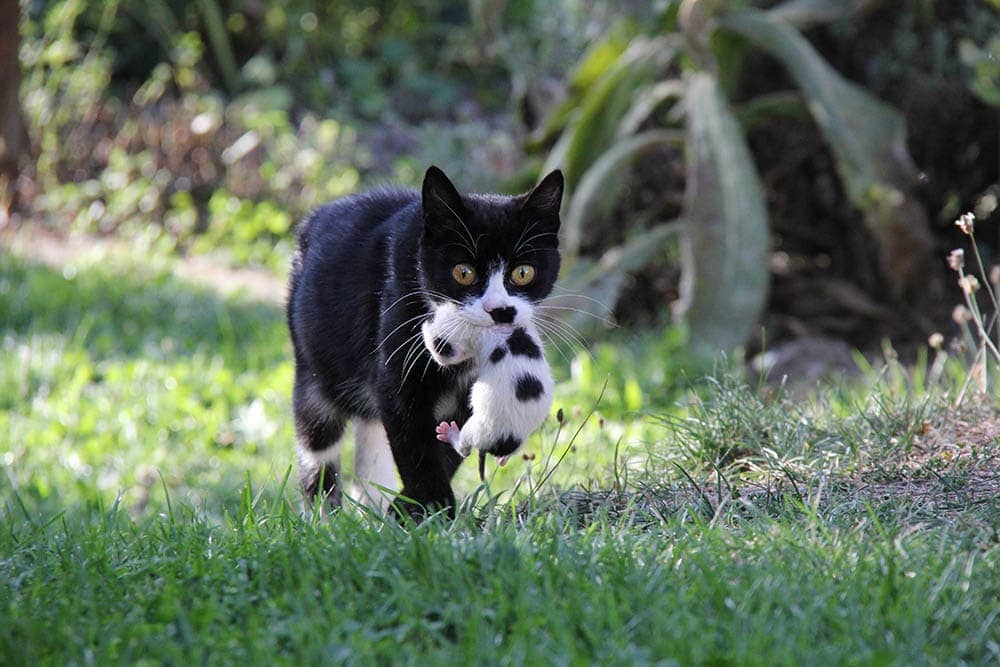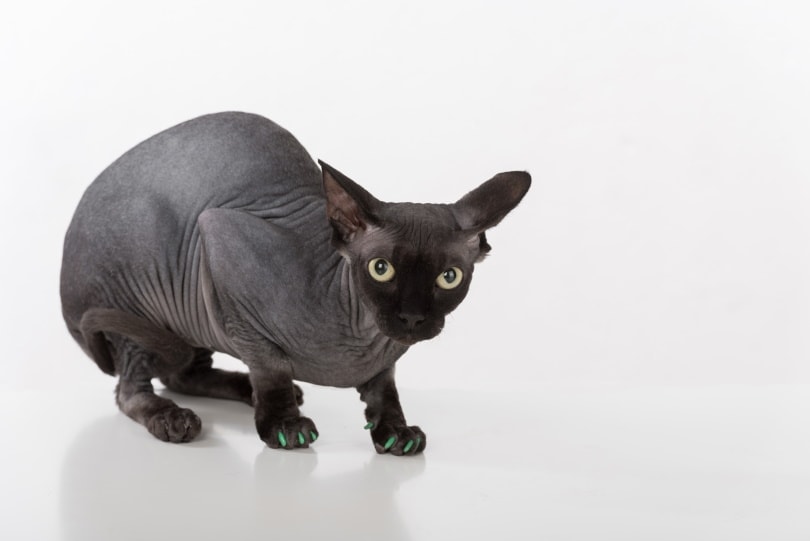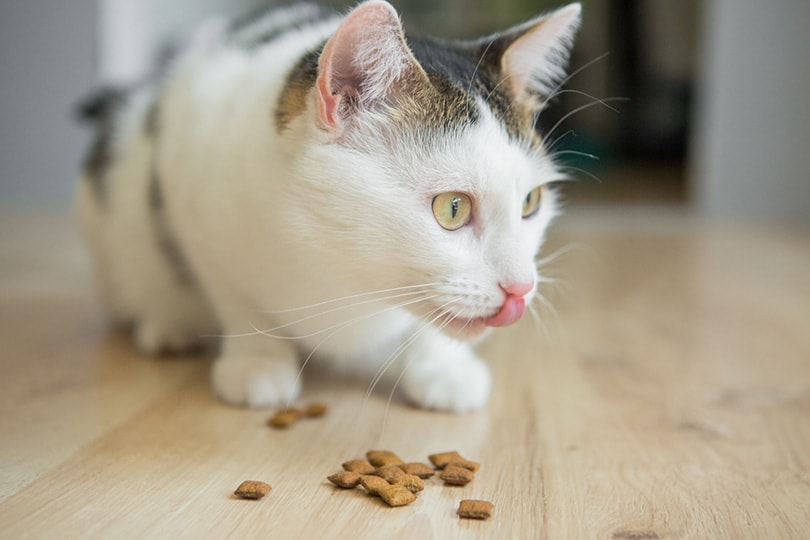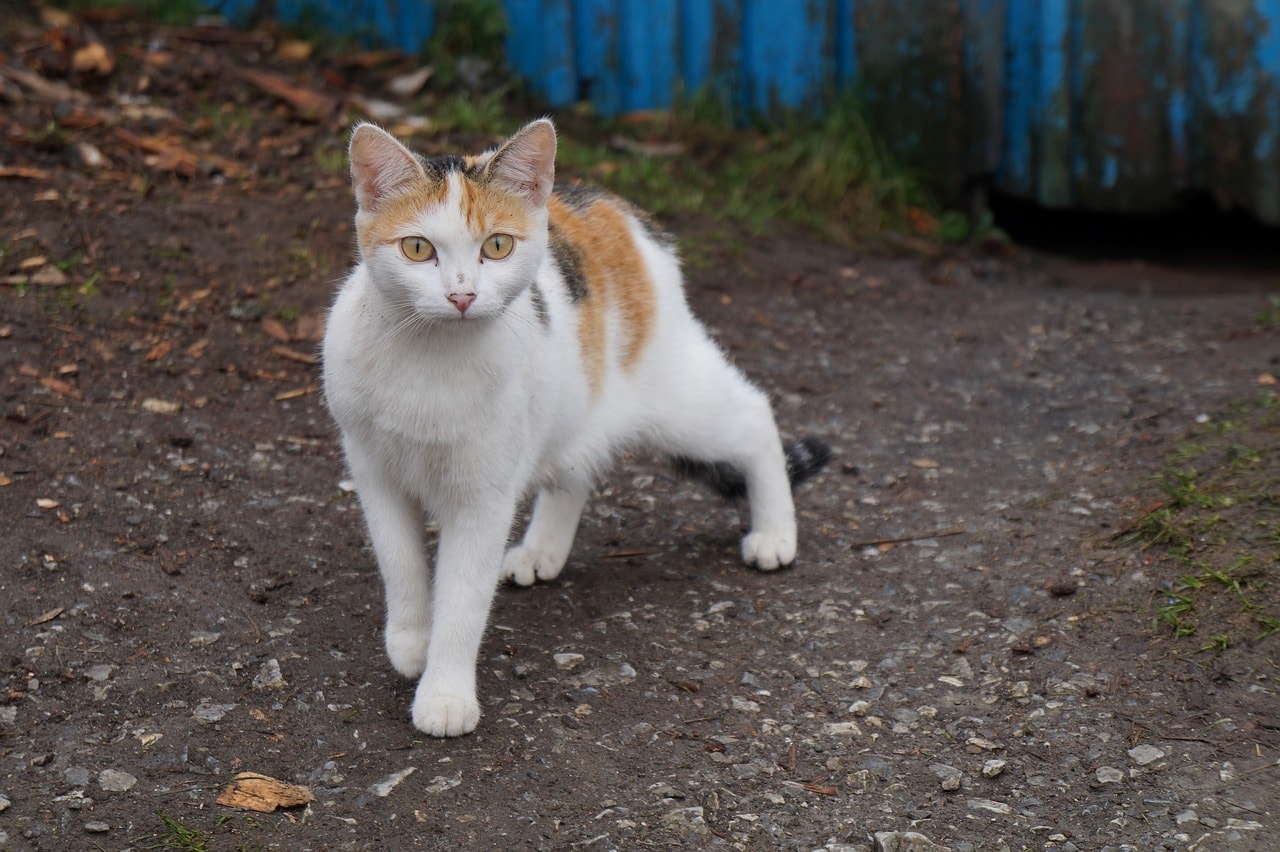If you are breeding cats or take care of stray cats that frequently have kittens, one of the most terrifying and upsetting things you are likely to experience is seeing your mother cat eat one of her babies. Luckily, it’s not very common, but it is possible. If there is the possibility of kittens in your future, keep reading while we look at why cats do this and how likely it will occur under your watch so you can be better prepared.
Why Do Cats Eat Kittens?
1. It’s Unhealthy
One of the most common reasons a cat will eat one of her kittens is because it is diseased or unhealthy and unlikely to live. In this case, the mom will eat the kitten to prevent it from suffering. Cats have more than 200 million odor sensors in their nose, and they can use their acute sense of smell to detect things we can’t, and many people believe that disease is one of the things they can smell. An unhealthy kitten poses a danger to the rest of the litter because if it dies, bacteria can quickly spread, leaving the other kittens vulnerable.
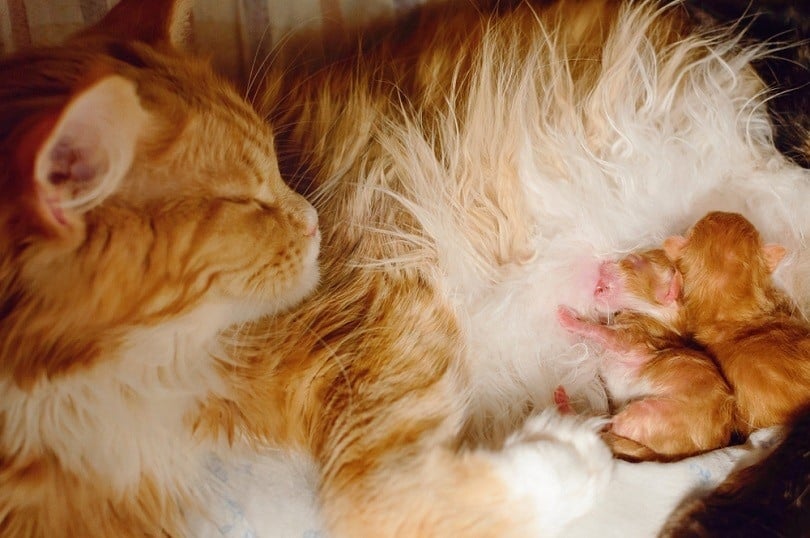
2. It’s Stillborn
Like we just mentioned, a dead kitten can quickly spread bacteria to the rest of the litter, so the cat has no choice but to consume it if it is stillborn.
3. The Litter Is in Danger
You might ask why you couldn’t remove the sick or dead kitten so the cat wouldn’t eat it. The answer is because your cat will tolerate no interference with the litter for at least the first week after birth. Any attempts to get near it will cause her to think the spot is not secure, and she will begin to move it. If she can’t move it or feels that it is too difficult, she might eat one or more of the kittens, so most experts recommend keeping away from the nesting area at all costs for a week or two.
Cats with good homes are extremely unlikely to eat their kittens because they feel safe and will usually move the nest if you get too close. In the wild, your cat faces danger from multiple predators that might see the kittens as an easy meal, and the mother might eat the kittens to reduce stress if she feels they are not secure.
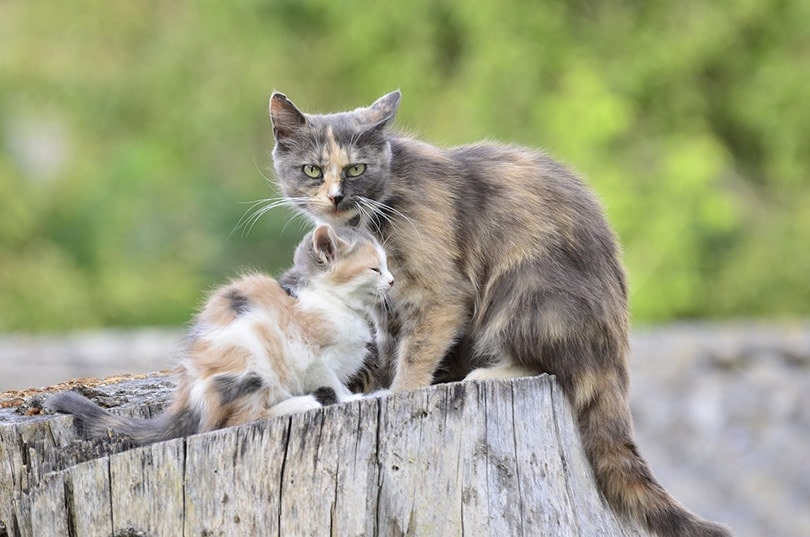
4. A Long Stressful Labor
Some cats can go into labor for three days or more. While the cat may eat and drink during this time, the process can take an enormous toll on it. Long deliveries can often leave the cat famished, and it may consume a kitten to regain some of the nutrients it lost. Cats are strict carnivores, and they can recover important nutrients from eating a kitten that will help it continue giving birth.
5. Inexperience
It’s rare, but inexperience can be to blame for some first-time mothers eating their kittens. Your cat may not know what to do besides eating them, or they may be too rough, unintentionally killing and then eating the dead.
6. Malnourished
One of the most common reasons a cat might eat one of her kittens in the wild is that she is malnourished and requires the nutrients she gets from eating her young. She will also usually eat the placenta. If the cat is extremely underweight, it may eat the entire litter. If there are kittens left, they will receive increased nutrients through breast milk, so the sacrifice of one can improve the health of many.
Luckily, it’s rarer in America for a pet cat to be underweight to the point where it will need to eat a kitten to survive. Some experts suggest that as many as 50% of cats over the age of five are obese and could stand to lose a few pounds.
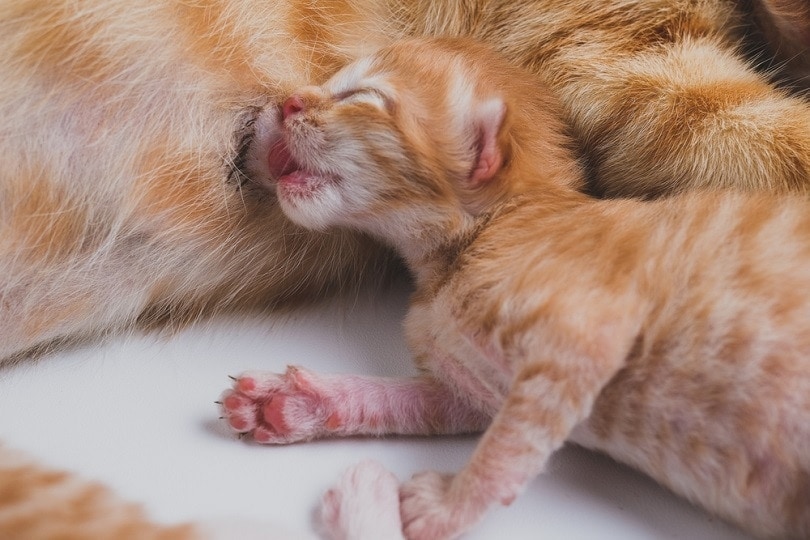
7. It Doesn’t Recognize the Kitten
Another reason to avoid getting close to the kittens when they are first born is that your cat will use its strong sense of smell to identify its offspring. The slightest change in scent could cause your cat to mistake the kitten for a predator, and it will not hesitate to kill for the sake of the litter. A single touch is often all that is required to change the scent of a kitten and confuse the mother.
Do Male Cats Eat Kittens?
Male cats do not eat kittens and are more concerned with protecting their territory and gathering females for mating. There is little risk that the father will even get close to the kittens during the first few weeks. However, some male cats may attach the litter of another female to help ensure the survival of their offspring by reducing the demand for resources. When the male cat kills these kittens, it might also eat them.
How Can I Help Ensure My Cat Doesn’t Eat Her Kittens?
The best way to prevent your cat from eating her kittens is to keep her healthy when she is not pregnant. When it’s time to give birth, provide her with a private area away from traffic and noise. Resist the temptation to interfere in any way, so you don’t make her feel that the litter’s safety is compromised, and there will be a low risk of her eating the kittens.
Summary
The most likely reason your cat will eat a kitten is that it was born unhealthy or stillborn. Although still rare, it’s more common in domestic cats than purebreds because there is no record of mixed genes with strays. Breeders can’t selectively breed out diseases and genetic problems, and there is no way to tell if the kitten will have a disorder. Your cat might eat the kittens for any of the other reasons, but they are more common in feral cats living in the wild without the benefit of food and shelter.
We hope you have enjoyed reading over this short guide, and it has helped answer your questions. If we have helped you learn something new about your pet, please share our look into why cats sometimes eat their kittens on Facebook and Twitter.
Featured Image Credit: Lucie Bartikova, Shutterstock
